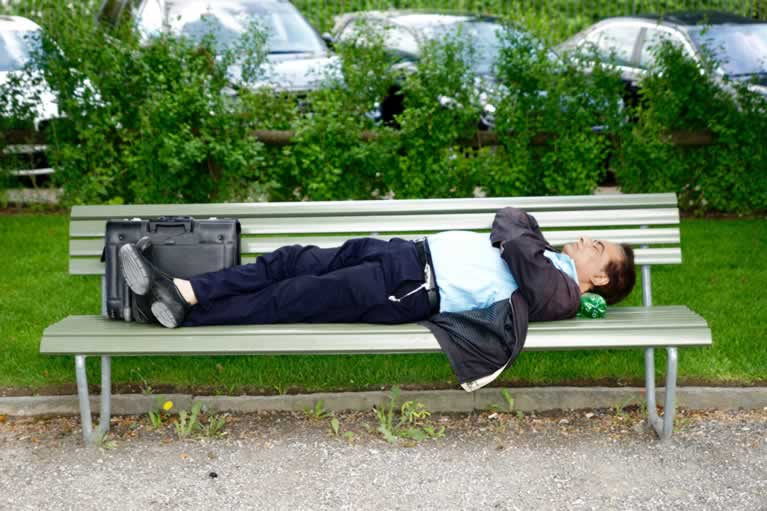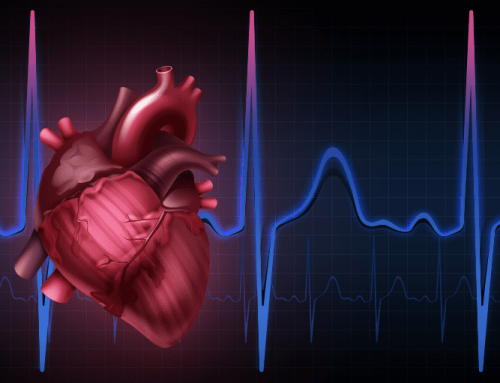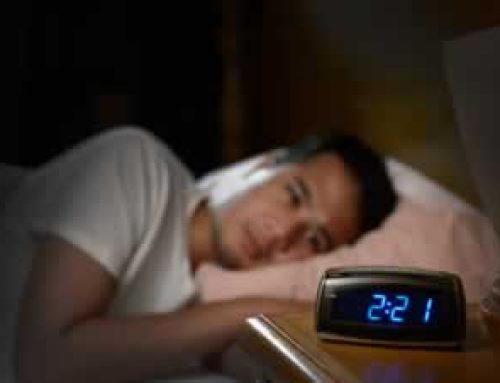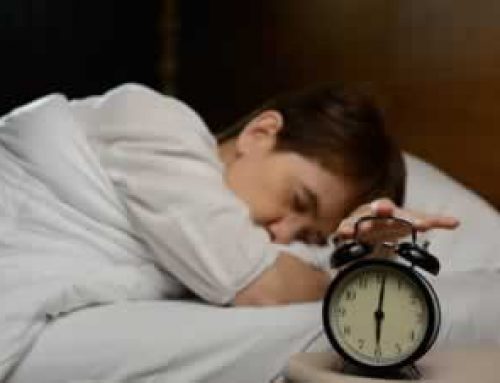
5 Surprising Reasons You May Be Feeling Tired All The Time
(and why you shouldn’t ignore it)
Feeling tired day after day? It may be more than an uncomfortable mattress or stress keeping you up at night. Sometimes we just don’t get a good night of sleep, and sometimes our tiredness is caused by something more surprising. When an overly tired feeling persists day after day, it’s not something you should ignore. Excessive tiredness and fatigue can be a sign of other more serious problems that need to be addressed.
Check out this list of five surprising reasons you may be feeling tired all the time to see if any of them sound familiar.
1. You May Be Dehydrated
Dehydration has been directly linked to fatigue and chronic tiredness. Medical experts from Tufts University estimate that just 2-percent fluid loss can have a significant impact on our energy levels because it causes a visible reduction in blood volume. The research explains that dehydration makes the heart pump blood less efficiently. In turn, this restricts the speed at which oxygen and nutrients get to your muscles and vital organs. This causes exhaustion and can lead to further health problems.
Be sure to drink lots of water during the day!
2. You May Be Anemic
We all suffer the consequences of failing to get enough iron, but feeling tired all the time could be due to another condition: anemia. Anemia is a condition in which the blood doesn’t have enough healthy red blood cells. Someone who is anemic also has an iron deficiency in their body. This iron deficiency can cause the person to feel tired, weak, and unable to concentrate on anything for an extended period.
If you believe you may be anemic or are unsure you should schedule an appointment with your physician to get tested and discuss further treatment options if needed. Addressing an iron deficiency is one way to help treat anemia. You can help yourself by consuming more iron-heavy foods, including lean beef, kidney beans, tofu, eggs, dark and leafy vegetables, and nuts. Consuming foods rich in vitamin C can also help your body absorb iron-heavy foods!
3. You May Be Depressed
Even though depression is a psychological disorder, it can trigger physical symptoms including extreme tiredness and loss of energy. Often, this sense of constant exhaustion can cause depression for years. Chronic tiredness, a physical disorder, is often confused with depression because the symptoms are so similar. One symptom of depression is excessive daytime napping or excessive sleeping in general. Not wanting to get out of bed and napping all afternoon are also common symptoms of chronic tiredness. The biggest issue with these similarities is that each can trigger the other. Depression may lead to oversleeping and chronic tiredness, while chronic tiredness and oversleeping can lead to depression. In other cases insomnia has the same relationship with depression; insomnia can lead to depression, and when someone has depression it may cause insomnia.
Depression affects appetite and sleep — both are important for generating and replenishing energy. In most cases, people report having insomnia and getting less sleep, while others feel like they are sleeping too much; both will ruin your mood and energy levels. Be aware of warning signs that mistake tiredness for symptoms of depression.
4. You Do Not Get Enough Exercise
When tiredness sets in, sitting on the couch and relaxing could seem to be the only answer. But getting up and moving may be the best thing you can do to re-energize and eradicate fatigue. Research by medical experts at the University of Georgia in Athens discovered that compared with sitting quietly, one single bout of moderate-intensity exercise lasting for at least 20 minutes helped to boost energy and decrease feelings of tiredness. An earlier study by the University of George in Athens also found that when sedentary individuals completed an exercise program regularly, their fatigue improved compared with those who did not.
The U.S. Department of Health and Human Services Physical Activity Guidelines for Americans suggest that all adults need 2 hours and 30 minutes of moderate-intensity exercise per week and muscle-strengthening activities that work all the major muscle groups on 2 or more days per week. Brisk walking, water aerobics, riding a bike, playing tennis, and even pushing a lawnmower can all count toward this time spent doing moderate-intensity exercise. The weekly exercise can help you feel energized and decrease feeling tired!
5. You May Have a Poor Diet
An easy way to banish tiredness and fatigue is to make adjustments to your diet. Eating a healthy and balanced diet can make a world of difference. To improve your health and get all the nutrients you need—as well as eliminate fatigue—it is important you fuel up with a healthful mix of food from the five food groups: fruits, vegetables, grains, protein, and dairy. It is important to eat the right amount of calories for your sex, age, weight, and activity level. Eating either too much or too little can make you feel sluggish. Another way to prevent feeling tired is to vary your protein routine. Try to choose lean poultry and other meats, limit consuming processed meats, choose unsalted nuts and seeds, and select some omega-3-rich seafood. And, of course, never skip breakfast. Regularly skipping breakfast can lead to you missing out on key nutrients and the energy that you need to kick-start your day.
Next Steps
If you find yourself constantly tired day after day and can’t shake it with napping or getting better sleep at night, don’t shrug it off. There is always a cause, even if it is not what you may suspect. If you have tested out our list’s suggestions and are still tired all of the time, it’s time to see if you have a sleep disorder. Visit your physician today and order your home sleep test from Vitalistics.















